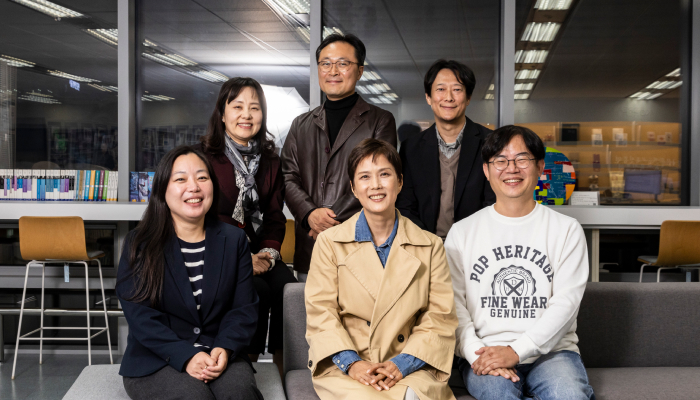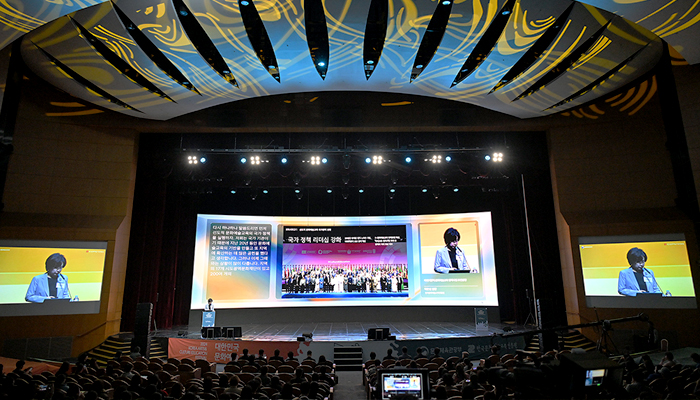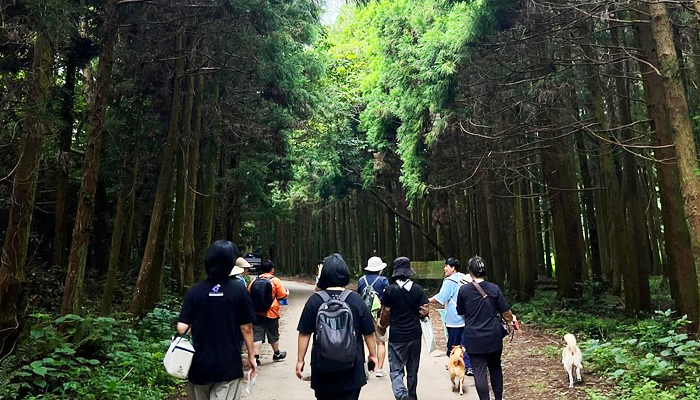
An old village which keeps its prosperity of the past
Haenggung-dong used to be one of the richest villages in Suwon City by the early 1990’s. However, the urban center came to decline as the residential land development proceeded around Hwaseong. Young generation left the town, and only natives of Haenggung-dong remained.
The village was quiet and seemingly decaying, but it was full of amazing stories handed down for a long time. The life of the elders is namely a vivid record of modern history. Buildings and roads of Haenggung-dong are also like that. There are a few people who collect stories about this place where looks like time stands still just like in a movie of 1970’s.
Unpacking the bag of stories
They were a group of students and a local cultural community ‘Seolnang’ in Suwon City. ‘Seolnang’, which stands for ‘a bag of stories’, has been collecting old stories about villages in Hwaseong since 2010. It is for the purpose of creating new cultural content by excavating various stories about the villages as well as continuing Hwaseong fortress tour.
Kim Hyeong-a, the president of ‘Seolnang’ said, “The life of elders who have gone through almost a century is indeed a precious history.” She explained that it is not merely something fun for youth and children to meet and listen to the elders about their old stories, but something that handed down or learned from the elders. There are about 10 students who are participating in story collecting of ‘Seolnang’. This group has a funny nickname ‘Maenbal(meaning barefoot)’. They travel around Haenggung-dong to listen to and write down the stories of the elders. Kim and four mentors have been helping them to record the stories in a book.
They started to write down what they interviewed since last May. Today three children are listening to Lee Young-ja, an 82-year-old lady. They listened to her courteously while recording the interview and writing down important parts. While she boasted her good memory, she composedly unpacked her bag of stories for the children who are about the age of her grandchildren.
“I can’t believe such a hard time existed!” When Han Seung-min (a student) shook his head in disbelief, she continued, “I also know that my neighbors had to go through much harder times than I did. I was lucky compared to them.” Joo Soon-young, a student who dreams of becoming a historian, said “I’ve never read such a story in any history book.” Then mentor Choi Hwa-jeong replied, “That is why it is worthwhile to have oral statements and recordings.”
Devoted hands which keep records
The children prepared a lot in advance by studying about the old times of Haenggung-dong, and learning names and legends of the place through maps, history books etc. in order to keep records about the elders. However, they had some difficulties in communication and so on because they had more than 70 years’ generation gap. Despite these difficulties, even the vanishing expressions were also an important data to the children. It is also a valuable process of recording a dialect of an old village. The elders and the children already built a relationship that shares the value of this work as they meet each other regularly. Both of them always wait for this story telling time.

The Haenggung-dong stories which are collected through this process will be published into a book and filmed into a documentary. Also, they are now preparing an oral recording festival for Haenggung-dong elders in this October. ‘Seolnang’ is planning to spread this recording project into other areas, and to publish a book of recording once a year. The old future and history of the grass roots, which are recorded by the youth and children, are gradually regaining their light.
Written & Photographed by Noh Young-ran (Correspondent in Gyeonggi-do)
기사가 좋았다면 눌러주세요!
기사가 좋았다면 눌러주세요!
좋아요
0비밀번호 확인



















댓글 남기기